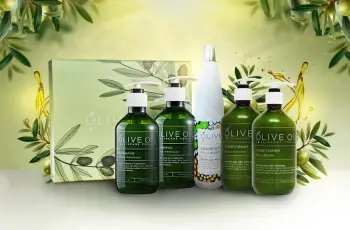
We all know that we need to take vitamins and supplements on a daily basis for optimal health, and our skin care routines are no exception. A glass of orange juice may boost your immune system, but what exactly does vitamin C do for your skin? From powerful antioxidants to lightning-fast hyperpigmentation busters, learn all about this popular ingredient and why it deserves a spot in your portfolio. Benefits of Vitamin C. Vitamin C, also known as ascorbic acid, is a multifunctional molecule that’s proven to help protect, brighten, and firm the skin. Known as the gold standard antioxidant, nationally board-certified dermatologist Dr. Ranella Hirsch explains that vitamin C helps neutralize free radicals, unstable atoms that are known to accelerate the aging process. “Vitamin C prevents cellular damage by stabilizing free radicals caused by pollution, UV rays, smoking, sugar, and stress, and as if its protective abilities weren’t enough, vitamin C is also ideal for shaving off dull skin and brightening the look of dull skin.” It fades discoloration. Eliminates spots and brightens the complexion. Whether you’ve suffered from severe sun damage during the summer or have post-inflammatory hyperpigmentation due to age spots, taking vitamin C regularly can provide relief. “It inhibits the production of melanin in the skin, which helps lighten areas of hyperpigmentation and even out skin tone,” adds Deer.
How to Use Vitamin C?
Vitamin C is found in a variety of products, from cleansers to serums to face scrubs. The ingredient comes in different strengths and concentrations, so all skin types — even acne-prone and sensitive skin — can benefit from it. While it can be used daily, start with 3-4 times per week and increase if you want to be safe.
While vitamin C is most often used in the morning, Hirsch tells us it also has a place in your afternoon skincare routine. “Vitamin C aids in cellular metabolism, which happens frequently, especially at night.”
If you’re looking for a new vitamin C product to add to your routine, check out our Weekend Glow Daily Brightening Moisturizer, a lightweight, non-comedogenic cream that’s packed with not just one, but two stabilized forms of vitamin C to penetrate deep into the skin for a brighter, firmer look.
Does Vitamin C Expire?
According to Dr. Hirsch, no matter what product you choose, the most important thing to you is finding one that uses the word correctly. The strongest form, L-ascorbic acid, is extremely unstable due to its sensitivity to light and air.
So look for products that come in airtight, opaque packaging, quickly replace the lid after use, and store them in a cool, dark place (not a steamy bathroom) out of direct sunlight. Vitamin C doesn’t have an exact expiration date, but most serums (depending on how much vitamin C is in the formula) are most effective if used within three to six months of opening.
If your fruits and veggies are turning a dark brown due to oxidation (don’t worry — orange is normal), it’s time to separate. For maximum freshness, try a vitamin C powder, like the one in Found The Light Vitamin.
Not only does a vitamin C powder ensure its effectiveness lasts longer, but it also allows you to mix this brightening ingredient into any of your other favorite skincare products.
What can I apply vitamin C with?
Vitamin C combines well with most other ingredients, but it’s especially effective when combined with these. Niacinamide This is a great combo for acne-prone, dull, and aging skin. Vitamin C brightens the complexion and
increases collagen production, while niacinamide smooths pores, reduces inflammation, and increases elasticity. For an all-over brightness, check out this combo in Stroke of Brilliance Brightening Serum.
If you have annoying dark circles, apply our Vacation Eyes Brightening Eye Gel to the eye area. Sunscreen Because vitamin C is an antioxidant, it fights free radicals and prevents sun damage, which can enhance the effectiveness of sunscreen. Follow with a moisturizer containing Vitamin C to maximize the protective benefits of Guards Up SPF. Exfoliating Acids (AHA/BHA) This combination works so well because the acids dissolve dead skin cells, allowing the Vitamin C to better penetrate the skin. Use our Weekend Glow Daily Brightening Toner to share its benefits, or, if you’re looking for something more intense, use our Doctor’s Visit Instant Revitalizing Mask. Retinol* This powerful combination can be used to inhibit and repel environmental aggressors. However, to avoid possible irritation, they should not be combined alone. Instead, look for products that already contain both ingredients.


